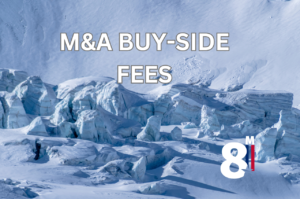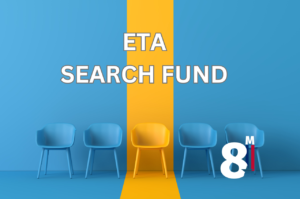Can You Acquire a $1M EBITDA Business as a Self-Funded Searcher?
Acquiring a business with $1M in EBITDA is a milestone goal for many self-funded searchers in the United States. It represents a transition from small business to lower middle market and offers the potential for strong cash flow, operational scale, and meaningful value creation. But is it realistic for a self-funded buyer to close on a business of this size?
Let’s break it down.
1. What Does a $1M EBITDA Business Look Like?
Businesses with $1M in EBITDA typically generate between $3M and $10M in annual revenue, depending on the industry and margin profile. At this level, they often have:
A well-defined organizational structure
Middle management (not just owner-operator dependency)
Repeat or recurring customers
Clean financials (although not always)
Seller expectations of professional buyers and structured processes
These businesses are increasingly on the radar of Private Equity firms and strategic acquirers, making competition more intense.
2. What Are the Capital Requirements for a Self-Funded Searcher?
Let’s consider a typical deal structure:
Purchase Price: $3.5M to $5M (3.5x–5x EBITDA)
Down Payment: 10%–20% of total deal size = $350K–$1M
SBA Loan: Up to $5M, covering 70%–90%
Seller Note / Earnout: 10%–20%
To be competitive, a self-funded buyer must bring at least $500K–$700K in liquid capital, sometimes more, especially if the seller is less inclined to hold a note.
Key Insight: If you’re only bringing $200K–$300K to the table, a $1M EBITDA business is likely out of reach without outside investors or unusually favorable terms.
3. Is SBA Financing Available for $1M EBITDA Deals?
Yes—but with caveats.
Loan Size: The SBA 7(a) program allows up to $5M per borrower. A $4M deal with 90% financing is doable.
Collateral: A personal guarantee is mandatory. If you don’t have sufficient assets, lenders may still fund you based on cash flow.
Experience: Lenders often scrutinize industry and management experience more heavily at this size.
Deal Quality: SBA lenders expect strong financials, documentation, and a clear post-close plan.
4. Why Sellers Might Choose a Self-Funded Buyer
Despite the competition from PE and strategic buyers, some sellers still favor self-funded searchers:
Personal legacy matters more than top dollar
Faster, simpler due diligence
Shared cultural or generational alignment
Willingness to transition slowly and train the new owner
Positioning yourself as “owner-operator with skin in the game” can resonate powerfully.
5. Practical Challenges
Competition: PE firms and strategic buyers often offer higher valuations, faster closes, or all-cash deals.
Speed: Self-funded searchers can struggle with slower financing timelines, especially with SBA.
Negotiation Power: Without dry powder or investor backing, flexibility is limited.
6. Success Factors for the $1M EBITDA Deal
If you’re a self-funded searcher aiming this high, focus on:
Industry specialization: Know your target sector cold.
Proprietary sourcing: Don’t rely solely on brokers—off-market gives you leverage.
Relationship-building: Sellers at this level want to trust the buyer.
Creative structuring: Use earn-outs, seller notes, or performance-based terms.
Solid team: Bring on an experienced M&A attorney, CPA, and SBA-friendly lender early.
Final Takeaway
Yes, acquiring a $1M EBITDA business as a self-funded searcher is possible—but only if you come well-prepared, well-capitalized, and positioned as a true operator, not just a financial engineer.
These deals are rare and competitive, but they’re not out of reach for the disciplined, strategic, and relationship-driven searcher.





